- Home
- Sharyn McCrumb
The Rosewood Casket Page 3
The Rosewood Casket Read online
Page 3
J. Z. shook his head. “Not that I know of. He almost never leaves home since Clarsie passed on. He never was one to travel. Why do you ask?”
“I just wondered,” said Angie. “He hasn’t taken the mail out of his box in a couple of days. I thought he might have gone visiting, and forgot to have his mail stopped. Lots of people go off on vacation without telling the post office. You’d be surprised.”
J. Z. Stallard nodded, ready for the conversation to end. “I believe he’d come and ask me to watch out for things if he did take a mind to leave,” he said. “I’ll look in on him directly.”
As Angie’s station wagon eased off down the road, Stallard fished his keys out of his pocket and walked to his truck, hoping it would start. It needed a new carburetor, but he was trying to put off the purchase until his tax refund came back.
As he drove the half mile to the Stargill place, J. Z. Stallard tried to think of all the bad things that could have possibly happened to Randall Stargill—everything from a heart attack to armed robbers breaking in and tying the old man up while they ransacked the house—because he half-believed that if you thought of a bad thing in advance, it wouldn’t have happened. In his experience, bad luck was always the unexpected disaster, like the lightning striking the barn roof in October. The fire department had managed to get there in time to save the structure, but the roof was badly damaged, and there hadn’t been any insurance to pay for replacing it. These days farming was supposed to be a part-time job, but it was all he had ever done, and he was too old to change now.
If he had thought about it, J. Z. Stallard might have been forced to admit that he didn’t like Randall Stargill all that much. The old man kept to himself most of the time. Perhaps it was a habit that he had got into as a youth, when people still remembered the old tragedy and either steered clear of him or tried to pry into family matters. Whatever the reason, he seemed to expect people to take against him, and there was a wariness about him that made folks uneasy without knowing why, so they left him alone.
When Clarsie was alive, the Stargills went to church, and they had showed up at community get-togethers, where Clarsie talked and Randall stood around holding a plate of food and saying as little as possible, but now that he was a widower, he seldom ventured past the gate to his farm. Randall’s lack of charm and neighborliness was not an issue today, though. He was a neighbor—maybe even distant kin if you checked the family pages in the Bible to way back when—and duty required J. Z. Stallard to do all he could for the man.
He pulled his truck in behind the faded Ford F-100 that had been Randall’s vehicle for more than a decade. That it was still there did not rule out anything, in J. Z.’s opinion. Randall might have left the mountain in an ambulance, and robbers would not have stolen such a decrepit truck, regardless of what else they might steal. As he walked to the house, he looked for signs of broken windows or any evidence of forced entry. Maybe he should have called Sheriff Arrowood, he thought. At his age, J. Z. Stallard was in no shape to play hero against a gang of vandals. All seemed peaceful, though.
He found the back door unlocked, and after waiting a few moments while his knocking went unanswered, he let himself in. The kitchen was rank with stale food and unwashed plates, but he still didn’t see any sign of intruders. The only disarray was the ordinary detritus of a solitary man who had ceased to care how things looked, or even how they smelled. He walked to the living room, to get away from the kitchen stench, and cupped his hands over his mouth, calling out for Randall, but all was silent. Illness, then, thought Stallard.
He walked from one littered room to the next, praying he wouldn’t trip over his neighbor’s remains in the dimness. He found Stargill in the little back bedroom, burrowed under a load of quilts and blankets, eyes closed. He was pasty-faced and gaunt, but when Stallard pulled back the blanket he could see a faint movement of the old man’s chest, and he sighed with relief that he had not come too late.
Stargill wasn’t dead, but he wouldn’t wake up. J. Z. Stallard went back to the kitchen, intending to call the rescue squad. He had just lifted the receiver when he noticed the white envelope atop an address book by the telephone, addressed “To Whoever It Concerns.” J. Z. replaced the receiver and picked up the envelope. He reckoned that the act of intruding with good intentions made it his concern. He hoped it wasn’t a suicide note, because it suddenly occurred to him that he might be the closest thing poor Randall Stargill had to a friend, and he didn’t want to blame himself for his neighbor’s despair. He could have visited oftener, he told himself, as he tore open the envelope. Not that Stargill ever seemed grateful for company.
For an instant, before he looked at the contents of the envelope, Stallard wondered if he would learn the end to the old tragedy. He hoped not. It was best forgotten. It had nothing to do with him, and he did not want the task of deciding what should be done with the truth.
“I DO NOT WANT TO LEAVE HOME.” The words were printed in shaky block capitals on the top of a sheet of lined paper. “I WILL DIE HERE.”
Below that, Stargill had written the names of his sons: Robert Lee; Dwayne (deceased); Charles Martin; Garrett; and Clayton, with a phone number listed only for the oldest and the youngest. Beside Charles Martin’s name, the old man had written, “Unlisted. Keeps changing it.” And after Garrett’s name the words “Warrant Officer” appeared in parentheses, with the notation: “On active duty. Hard to find.” On the succeeding pages the handwriting became more crabbed, words packed close together, filling one sheet after another with instructions. J. Z. stared at the contents of the envelope, wondering what he ought to do.
Mr. Stargill was still hanging on to life, but he remained in a coma. There was no doubt in Stallard’s mind that his neighbor belonged in the hospital in Johnson City. The county ambulance could transport him there in less than an hour, but the note was adamant: he was to be left at home. That seemed clear enough, but Stallard wondered if such a document would legally absolve him from the responsibility of getting the old man more help than perhaps he wanted.
What if Stargill really was at the end of his long life? He was nearly eighty, and failing; his family was gone. Sometimes nursing homes kept you from dying without really keeping you alive. They could hook old Stargill up to purring machines that fed him and breathed for him without really bringing him back, and he could linger like that for months, tended by strangers, trapped in the concrete walls of the old folks prison.
It wasn’t cheap, either. Somebody at church had mentioned an elderly aunt who’d had to go into a nursing home for long-term care, and her children had ended up selling the farm to pay for a comatose existence that may have been intolerable to her. J. Z. hoped that if he ever hovered between living and dying, with his foot caught in the trap, that his daughter Dovey would have the good sense to let the end come quickly. He didn’t want to die by inches among strangers.
He looked again at the scribbled sheet of lined paper. Old man Stargill didn’t want a drawn-out death, either. That was clear. But it was also clear that J. Z. couldn’t turn around and walk out as if he had not found the sick man. Regardless of Stargill’s wishes, J. Z. could not live with such an act of abandonment on his conscience.
He picked up the phone, hesitated a few moments longer debating the possibilities, and then dialed his own number. He let it ring a dozen times to give Dovey time to answer in case she was at the clothesline or out checking on the livestock. They had an Angus heifer that was nearly due with her first calf. Finally he heard his daughter’s gasping hello, and he talked quickly while she caught her breath.
When he’d finished explaining the situation, he heard her sigh. Finally she said, “You didn’t call an ambulance, did you?”
“No, Dovey. I haven’t yet. He’s set against it in his note. I figured the least we could do is to notify the boys, and let them make the call. But he needs somebody with him, and I’m no good at sickbeds.”
The sigh again. “All right, Dad. I’m coming ove
r now.”
* * *
An hour later, Dovey Stallard came out of the bedroom, wiping her hands on a dingy towel. “I cleaned him up, and changed his sheets, anyhow,” she told her father, who was sitting at the kitchen table. “His condition hasn’t worsened any. Now what? Have you notified his kinfolks?”
J. Z. shook his head. “I couldn’t sit still. Besides, I was trying to straighten up a little in here. I got most of the garbage bagged to take out and the floor swept, so it won’t stink so much. I wouldn’t want the boys to come home to that.” He picked up Randall Stargill’s letter. “I figured I’d call them when I finished the kitchen. Not that I think any of them will be home this early, and, to tell you the truth, I’m not looking forward to the conversation when I do get up with them. This letter is the damnedest thing, Dovey.”
“What is it? A will?”
“Not in so many words. It says Stargill doesn’t want to leave. Says he wants to die at home. He wants his boys to build his coffin. I believe his mind was going toward the end. But, of course, he ought to be in intensive care, because this might be a treatable illness. Maybe it’s not his time yet.”
“I don’t think he has a chance of making it,” said Dovey, glancing at the crabbed writing on the paper. “He must be nearly eighty, and he’s in a coma. Suppose we take him to the hospital, and he gets better, and then he gets out and sues us for violating his instructions?”
Stallard shrugged. “He couldn’t get much from me, Dovey. I can’t even pay the taxes on the farm this year. What with the fire and all.”
“He could sue for spite, and we can’t afford to pay a lawyer. Let somebody else decide what happens to him. You’ve done as much as duty demands.”
“We could call the county attorney,” said Stallard. “See what he says.”
Dovey shook her head. “You ever try to get a straight answer from a lawyer? We need to know now—not next week. Call Mr. Stargill’s sons about this. You’ve put it off too long already.”
J. Z. Stallard hesitated. He hated telephones. “Clayt still lives around here, doesn’t he?”
“He tells people he lives in the state capital,” Dovey sighed. When her father looked blank, she added, “You know—Jonesborough.” The village had a one-block business district and a population of a few thousand at most, but in the era of history that was Clayt Stargill’s passion, frontier Jonesborough had been a state capital. By 1788, when the lost state of Franklin was reabsorbed by North Carolina and Tennessee, Jonesborough’s brief flicker of glory was over, and it reverted to a paintbox-pretty mountain town where Norman Rockwell would have felt at home.
Dovey Stallard turned on the hot water, and began piling stained coffee mugs and food-encrusted plates into the sink. “Might as well do these dishes while we’re tidying the place up.”
“What’s he doing now?” He noticed that Dovey’s expression had not changed when he mentioned Clayt, and he was relieved. She had been mighty taken with the Stallard boys in her young womanhood. He never could figure out which one broke her heart. Dovey wasn’t much on talking about feelings.
“What’s Clayt doing?” Dovey laughed. “What day of the week is it? Clayt’s the same as ever. He does ten things at once, and hardly scrapes together a living out of the lot of them. White-water rafting guide. Freelance photographer. Local artist. Park service employee. I can’t keep track. All that education, and not a lick of ambition in his whole body. Of course, he’s the baby of the family.”
“I always thought he’d make a good farmer,” her father replied.
“He’s got the hang of being poor,” said Dovey. “But he doesn’t have a lot of practical know-how. You’d think that Charles Martin Stargill would have paid to have live-in help for his father. He must be making good money. I saw him on the Nashville Network last month, singing with—somebody. Might have been Louise Mandrell.”
J. Z. Stallard looked doubtful. “Charles Martin’s number isn’t here, and I’m sure the operator won’t give it out, with him being famous and all. Besides, he might be on tour or something—hard to reach. Same thing with Garrett in the army.”
“That’s too bad,” said Dovey. “Because Garrett is the likeliest one to take charge. He’s the only one who could make decisions and stick to them. When we were kids, he was always the one who decided what we played and whose side we were on.”
“I say we try Clayt first, because he’s closest, and Robert in Cincinnati.”
Dovey shrugged. “Fine. See if you can reach him.”
Stallard dialed the Jonesborough number, and waited, moving his lips a little as he rehearsed what he had to say. After nearly a minute, he hung up. “No answer.”
“Didn’t think there would be. I can’t see Clayt being cooped up inside on a fine afternoon. I expect he’s out wandering some place, and calling it research. You call Robert Lee in Cincinnati, Dad. After I finish these dishes, I suppose I could go out and see if I can find Clayt. He’s useless, but he’s the closest. If he’s still not home, I’ll leave a note on his door and then drive around and try to find him. I still remember most of his haunts.”
J. Z. Stallard glanced toward the dark hallway. “Should I stay here?”
“It would be best,” said Dovey, seeing his reluctance to be left alone with the dying man.
“I’ll be back with Clayt as soon as I can. And when you talk to Robert, see if you can get the phone number for the other two. Maybe one of them will have the sense to let you call an ambulance.”
In the small back bedroom, the old man slept on.
* * *
Clayt Stargill had climbed to the highest meadow because he wanted to feel spring coming. Actually, what he wanted to see, and try to experience, was the spring of 1761, and while this was as close as he was going to get to that far-off wilderness, it was still wrong by a long shot, and he knew it.
Daniel Boone, on one of his long hunts from the Yadkin settlement had watched for spring on just such a mountaintop in the Smokies, and Clayt was trying to capture the feel of the wilderness from Boone’s eyes. He had grown up hearing stories about Daniel Boone, mostly from the old-timers in the community, but sometimes at school, too. The eighteenth-century pioneer was considered a favorite son by the people of the mountains; there was hardly any place he hadn’t visited. Before Boone pioneered Kentucky, he had lived in the Virginia Blue Ridge, then on the Yadkin River in North Carolina. From there he had made winter expeditions into Indian country, the mountain land that was the communal hunting ground of the Cherokee, the Catawba, and the Shawnee, forbidden to settlers until the American Revolution nullified the British treaty. Each spring he would return to his family on the fringes of civilization, bringing furs that could be sold for the necessities of pioneer life.
He’d had a camp near what is now Boone, North Carolina, and he had roamed the Clinch and Holston river valleys in search of game. Legend had it that Boone had abandoned a dying horse in a meadow near Roan Mountain, only to return a few months later to find the animal restored to health by the abundance of the land, and many a county in Tennessee and southwest Virginia claimed to have once had a tree with Boone’s name carved deep into the trunk.
There was such a Boone tree in the Stargill family legend, and although Clayt had never succeeded in finding it, he could not quite lose his belief that such a thing existed, somewhere on the wild mountain land beyond the Stargill fence line. D. Boon cilled a bar on this tree—1761. Crude words carved into the bark of an old tree, a monument to an ancient battle between a great man and an even greater wilderness. Clayt and his brothers had spent long hours on the mountain looking for that fabled tree that his father insisted lay somewhere in the woods on Stargill land, but the old man never went with them, nor did he seem to care whether they found it or not.
Clayt grew up loving the land, and wanting to know everything about the plants and animals around him, but he’d had to find it out on his own. Randall Stargill, if he knew such things, kept them to himself. It wa
s the same with Daniel Boone. Born in Pennsylvania in a Quaker farm community, his love of the wilderness had made him almost a changeling among his village-dwelling kinfolk. The way Clayt Stargill saw it, he and Daniel were a lot alike, except that it was easier to be that way in the eighteenth century than it was in the twentieth.
Clayt was 5'8" and sturdy, dark-haired with blue gray eyes, as Boone himself had been, and when he was dressed for the part—in leather breeches and moccasins, a long coat in the eighteenth-century fashion, and a Quaker-style beaver hat—there was a passing resemblance. Clayt always had to explain the beaver fedora to schoolchildren when he visited their classrooms as a living history instructor in the part of Daniel. No coonskin cap, he would tell them. Boone never wore one. That was just television, getting it wrong as usual.
The Boone outfit would have kept him warm enough up here, except for the wind, but he was glad of his boots and his modern down parka today. It was still winter by the calendar, and the wind that whipped across the open field numbed his cheeks, and pierced his lungs when he drew breath, but the signs of the coming glory would warm him more than the central heating down in his little house in the valley. He had work to do, a grant proposal to write and letters to answer from schools interested in his living history program, but all that would have to wait. Spring days like this were all too few, and he couldn’t waste them indoors. This was research, too, he told himself. He had to live the part to be convincing.
It would be cold for weeks yet here in the high country, but you could see spring coming from a long way off. On the far ridges across the valley, the maple branches were red-tipped with buds, and here and there beneath the bare hickory and oak trees, an early redbud flamed. Its deep pink, the solitary flash of color in the sepia woods, made him think of the burning bush in Exodus. Boone had named one of his sons “Israel.” Had he seen himself as Moses, leading his people into the promised land of Kentucky?

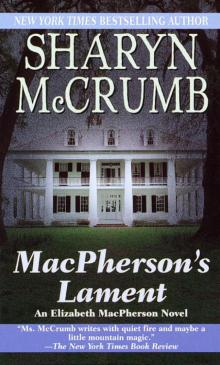 Elizabeth MacPherson 07 - MacPherson’s Lament
Elizabeth MacPherson 07 - MacPherson’s Lament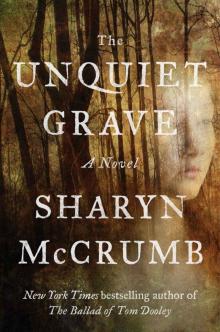 The Unquiet Grave: A Novel
The Unquiet Grave: A Novel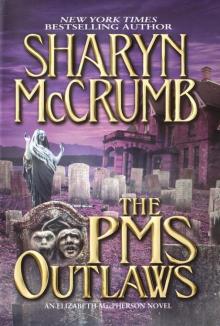 The PMS Outlaws: An Elizabeth MacPherson Novel
The PMS Outlaws: An Elizabeth MacPherson Novel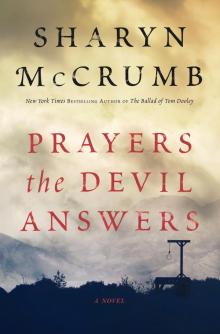 Prayers the Devil Answers
Prayers the Devil Answers Paying the Piper
Paying the Piper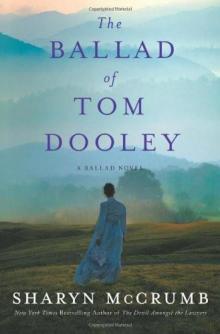 The Ballad of Tom Dooley: A Ballad Novel
The Ballad of Tom Dooley: A Ballad Novel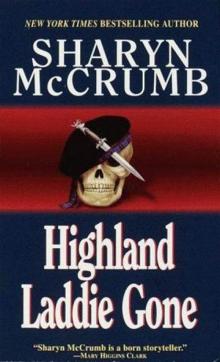 Highland Laddie Gone
Highland Laddie Gone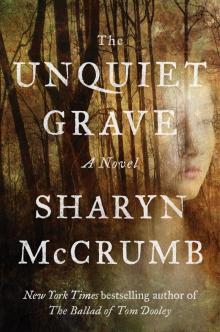 The Unquiet Grave
The Unquiet Grave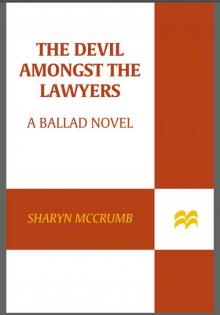 The Devil Amongst the Lawyers
The Devil Amongst the Lawyers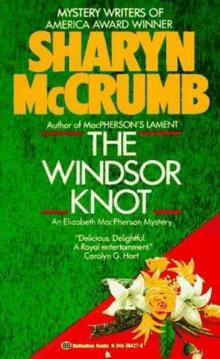 The Windsor Knot
The Windsor Knot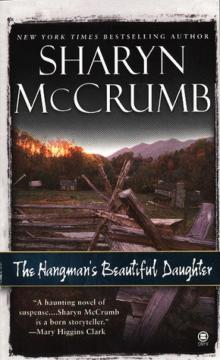 The Hangman's Beautiful Daughter
The Hangman's Beautiful Daughter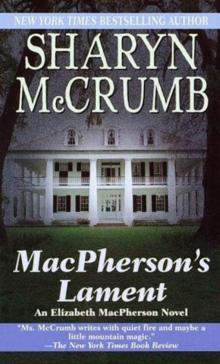 MacPherson's Lament
MacPherson's Lament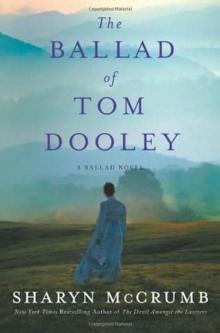 The Ballad of Tom Dooley
The Ballad of Tom Dooley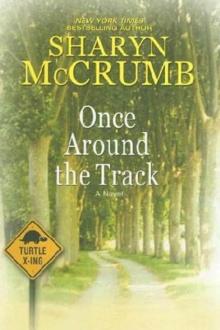 Once Around the Track
Once Around the Track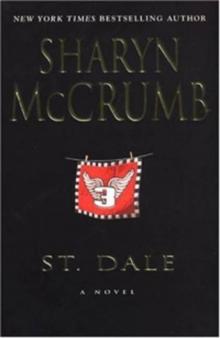 St. Dale
St. Dale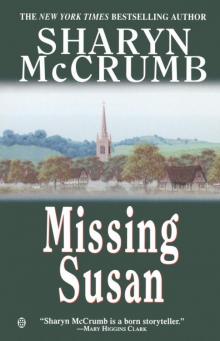 Elizabeth MacPherson 06 - Missing Susan
Elizabeth MacPherson 06 - Missing Susan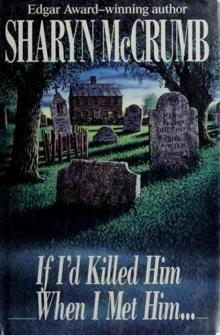 If I'd Killed Him When I Met Him…
If I'd Killed Him When I Met Him…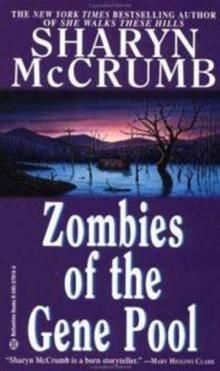 Zombies of the Gene Pool
Zombies of the Gene Pool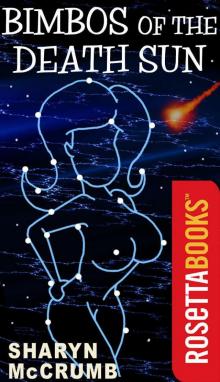 Bimbos of the Death Sun
Bimbos of the Death Sun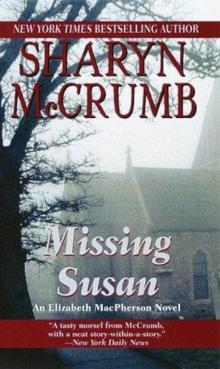 Missing Susan
Missing Susan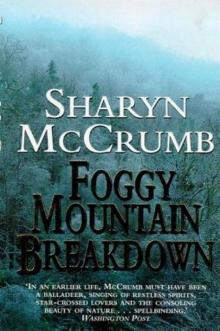 Foggy Mountain Breakdown and Other Stories
Foggy Mountain Breakdown and Other Stories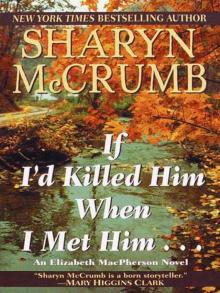 If I'd Killed Him When I Met Him
If I'd Killed Him When I Met Him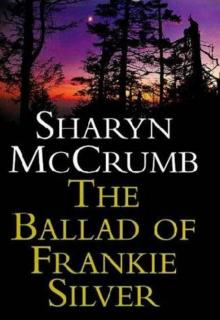 The Ballad of Frankie Silver
The Ballad of Frankie Silver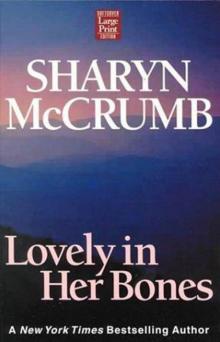 Lovely In Her Bones
Lovely In Her Bones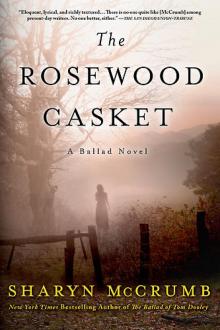 The Rosewood Casket
The Rosewood Casket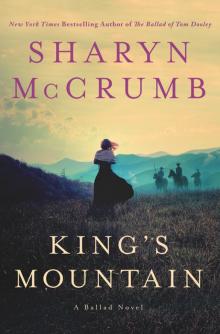 King's Mountain
King's Mountain